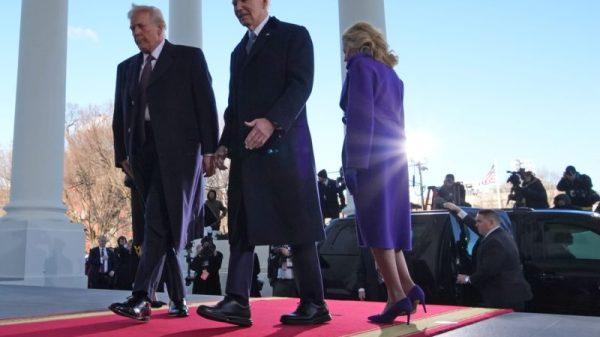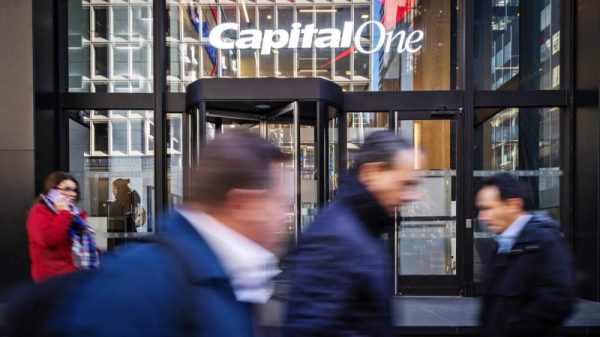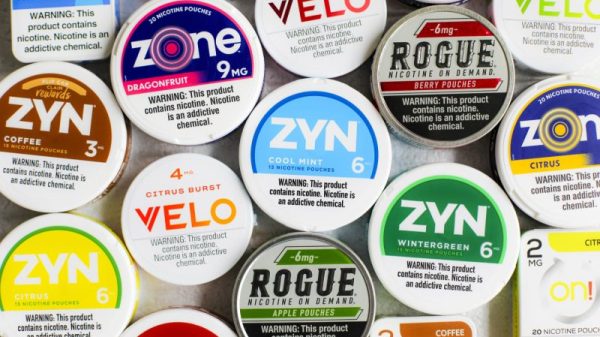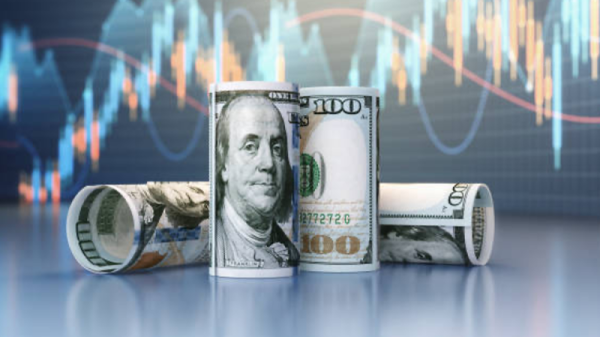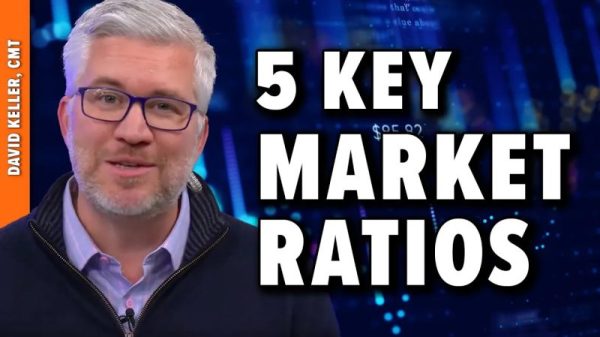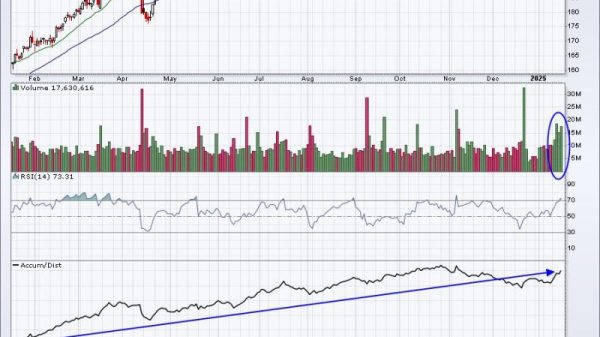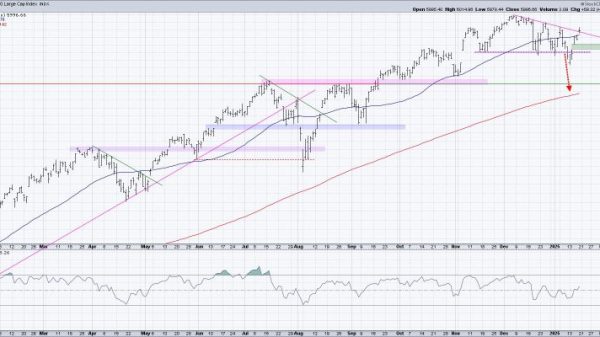WikiLeaks founder Julian Assange was released from a British prison and was making his way back to his home country Australia on Monday after his 12-year battle against extradition to the United States ended in a plea deal.
The controversial figure has spent the past five years in a high-security UK prison and nearly seven years before that holed up at the Ecuadorian embassy in London, trying to avoid arrest that could have led to life imprisonment.
On Monday, Assange, 52, agreed to plead guilty to a felony charge related to his alleged role in one of the largest US government breaches of classified materials after his whistleblowing website published nearly half a million secret military documents relating to the US wars in Iraq and Afghanistan.
The plea deal caps a long-running legal saga, allowing Assange to avoid prison in the US and return to Australia as a free man – but not until he has made a court appearance in a remote US territory in the Pacific.
Here’s what we know:
Where is Assange?
Assange boarded a flight from London’s Stansted airport on Monday after being released on bail from prison, according to a statement from WikiLeaks on Tuesday.
“Julian Assange is free,” WikiLeaks said. “He left Belmarsh maximum security prison on the morning of 24 June, after having spent 1,901 days there.”
Traveling with him onboard the flight is Australia’s High Commissioner to the United Kingdom Stephen Smith, the country’s prime minister said.
Under the terms of the agreement, US Justice Department prosecutors will seek a 62-month sentence – which is equal to the amount of time Assange served in the United Kingdom while he fought extradition.
The plea deal would credit that time served, allowing Assange to immediately return to Australia. The deal must still be approved by a federal judge.
Because Assange was resistant to setting foot in the continental US to enter his guilty plea, a judge will conduct the hearing and sentencing together on Wednesday in Saipan, in the Northern Mariana Islands, according to a letter filed by prosecutors.
The Pacific island chain is a US territory some 6,000 kilometers (3,700 miles) west of Hawaii and a US federal district court is based in the capital Saipan. The islands are also closer to Australia, where Assange is a citizen and is expected to return to after the court hearing, prosecutors said.
What did Assange do?
Assange was wanted by US authorities on espionage charges connected to Wikileaks’ publication of hundreds of thousands of sensitive military and government documents supplied by former Army intelligence analyst Chelsea Manning in 2010 and 2011.
The US accused Assange of endangering the lives of confidential sources by releasing the unfiltered cables and had for years been seeking his extradition.
He faced 18 charges for his alleged role in the breach and faced a maximum of up to 175 years in prison. British authorities had sought reassurances from the US that he would not receive the death penalty.
From Townsville, eastern Queensland, Assange started WikiLeaks in 2006 as an online repository that would publish anonymously submitted material, including the US military’s operating manual for its detention camp in Guantanamo Bay and internal documents from the Church of Scientology.
In 2010, WikiLeaks was catapulted to global attention when it released video that claimed to show a deadly 2007 US helicopter attack in Iraq.
Soon after, WikiLeaks released thousands of classified US military documents relating to the wars in Iraq and Afghanistan, as well as a trove of diplomatic cables.
Fight against extradition
Assange had long argued the case against him was politically motivated, that he would not face a fair trial, and his handover would violate the European Convention on Human Rights.
Free speech advocates condemned the extradition attempt, saying it would have a chilling effect on press freedom.
In August 2010, Assange was accused of sexual assault in Sweden and faced an international arrest warrant. He denied the allegations as “a smear campaign” and refused to go to Stockholm for questioning.
He turned himself in to British authorities but while out on bail in 2012 as he appealed extradition to Sweden, Assange fled to the Ecuadorian Embassy requesting political asylum.
During his time in the embassy, WikiLeaks kept up its data dumps, including in 2016 when it released thousands of emails apparently hacked from the Democratic National Committee and emails stolen from the private email account of Hillary Clinton’s campaign chairman, John Podesta, on the eve of the US election.
But over time, his relationship with his host soured and Ecuador’s president came under pressure from the US to expel him from the diplomatic bolt-hole.
In 2019, Assange was pulled from the embassy by London’s Metroplitan Police on an extradition warrant from the US Justice Department, and spent the next five years living mostly isolated, in a 3- by 2-meter cell at Belmarsh prison.
The prison has capacity for more than 900 inmates and is known for once housing infamous terror suspects such as the radical Egyptian cleric Abu Hamza al-Masri within its high-security unit.
Support for Assange’s release
There has recently been increased pressure for Assange’s case to be dismissed.
In May, London’s High Court ruled that Assange had the right to appeal in his final challenge against extradition to the US, and US President Joe Biden had alluded to a possible deal pushed by Australian government officials to return him to Australia.
The UN special rapporteur on torture and Amnesty International were among those who called on the United Kingdom to halt the possible extradition, citing concerns over the risk of abuse and other ill-treatment if Assange was sent to the US.
Upon his release Monday, Assange’s wife, Stella Assange, posted on social media, “Julian is free!”
“Words cannot express our immense gratitude to YOU- yes YOU, who have all mobilised for years and years to make this come true,” she wrote.
Speaking in parliament, Australian Prime Minister Anthony Albanese said, “regardless of the views that people have about Mr. Assange’s activities, the case has dragged on for too long. There is nothing to be gained by his continued incarceration and we want him brought home to Australia.”
Among those celebrating Assange’s release were the presidents of Colombia and Mexico. “Assange’s eternal imprisonment and torture was an attack on press freedom on a global scale,” said Colombian President Gustavo Petro.

